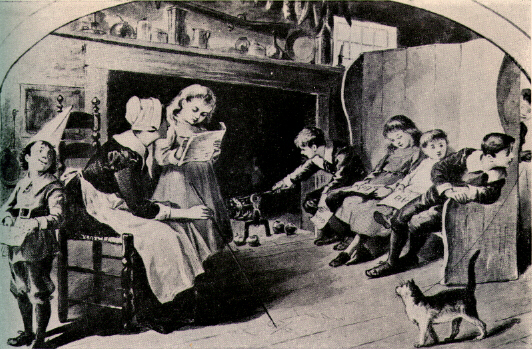Massachusetts passed the Old Deluder Satan Act in 1647, laying the basis for public schools in America. The Puritans valued literacy highly; they believed all individuals should be able to read and interpret the Bible for themselves. In 1642 Massachusetts had required parents to ensure their children’s ability to read, and five years later, in this act, the state mandated community schooling.
Act required towns to support teachers for their children
The religious basis of the act was explicit: the act stated its intention was to thwart “ye old deluder, Satan” in his goal “to keepe men from the knowledge of ye Scriptures.” To this end, the law required every town with 50 or more families to hire and maintain a teacher to instruct all children in reading and writing. Towns of 100 or more families were required to support a grammar school to prepare students to attend Harvard College. Similar acts were soon adopted in the other New England colonies, except Rhode Island.
Act established principles of public education
The act established several principles upon which public primary and secondary education continues to rest today: that basic education is a public or community responsibility, that the state can require communities to raise and expend local funds for schools, that day-to-day responsibility for the operation of schools rests at the local level, and that schools are to be organized in levels separating elementary from secondary education.
The religious origins of laws providing for education in early America may help explain some of the conflicts that have subsequently developed when courts, enforcing the establishment clause of the First Amendment, have invalidated devotional religious exercises in public schools.
This article was originally published in 2009. Dr. David Carleton is the chair of the Department of Global Studies and Human Geography at Middle Tennessee State University.

